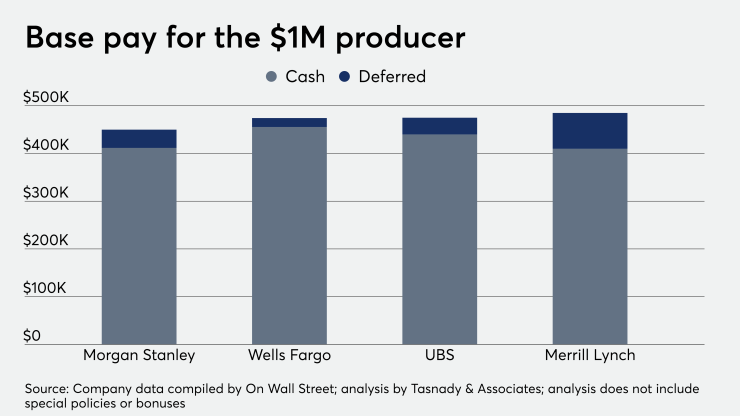When I started covering the wealth management beat six years ago as a cub reporter, my first assignment was a doozy: write the annual compensation report for wirehouse and regional BD advisors.
It was a complex topic for a newbie, akin to taking down a grizzly bear with a BB gun on your first hunting trip.
Since then, advisor compensation has not gotten simpler. If anything, it’s gotten messier. The latest twist? The coronavirus.
Whatever compensation changes that were going into effect this year have been swamped by pandemic’s economic fallout, says compensation consultant Andy Tasnady, who helped prepare this year’s analysis. “People who were making $400,000 are going to make $300,000.”
For years, firms have pivoted into fee-based business, touting it as a steady income stream. “Everyone annuitized their business,” Tasnady says. “Markets go up, your income goes up.”
But following the virus’ outbreak, markets tanked and have been topsy-turvy for weeks.
Client assets took a hit at nearly every firm on the Street for the first quarter. Wealth management assets fell 3% at
Grid stretches, small account policy changes — it’s a lot to keep track of. Our annual compensation report is here to help.
It’s also been a challenging time for financial advisors who have been inundated with client calls while working remotely and potentially dealing with quarantines. Brokerages such as Morgan Stanley, Wells Fargo and RBC have postponed some amendments to their 2020 compensation plans.
The economic pain caused by the pandemic undercuts the rationale for a grid stretch,” Tasnady says.

Morgan Stanley had intended to make several changes to its 2020 compensation plan, including a grid stretch that would have increased thresholds below the $5 million mark by approximately 10%. But in March
Advisors at Wells Fargo, meanwhile, were facing a tightening of the company’s pay policy on small accounts. Under its 2020 comp plan, for households under $250,000, the firm’s advisors are paid a flat 20% rate. Previously, it was a flat rate for households under $100,000.
But, like Morgan Stanley,
RBC also suspended its small balance household compensation policy for all households that fell below $100,000 in value after March 1, 2020, a spokeswoman says.
Both moves temporarily freeze a trend of brokerages penalizing payouts on small accounts in order to encourage advisors to work with larger clients.
Advisors are likely heartened by the welcome relief these policy changes provide. But in the interim, two things are certain. First, these temporary changes are just that: temporary. Second, firms are likely to put off further big transformations of their pay plans in light of this year’s black swan event.
Don’t expect a lot of “firms to make compensation cuts in the near term,” Tasnady says.







